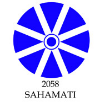OUR PARTNERS
The Glacier Trust works in partnership with local and international non-governmental organisations (NGOs) to fund capacity building in rural Nepali communities. The local and international NGOs work in unison, using their strong local and regional networks respectively, to implement effective projects.
We also have strong academic links; firstly to the The University of Southampton Geodata Institute who gave us unstinting support in setting up The Glacier Trust back in 2008; and secondly, with Tribhuvan University through our Higher Education programme. Find out more below!
LOCAL NGOs
Work directly in the communities and find out the problems.
Come up with potential ideas for solutions to solve the problems.
Directly implement the devised projects.
Local NGOs are integral to all the work we do. These local organisations are on the ground and know the problems and concerns of the local communities in which we serve. The projects are mainly conceived by local NGOs and are delivered by them.
INTERNATIONAL NGOs (INGO)
Prioritise the most vulnerable communities and work with the local NGOs to grasp the key problems that need addressing.
Devise solutions with the local NGOs using further widespread knowledge and manage the projects the local NGOs deliver.
The INGOs with whom we work have a wealth of experience and expertise which they bring to each community thereby giving a vital broader perspective on the matter than the local NGOs usually do.
Our in-country INGO partners are vital to all of our programmes through the management and broader expertise they bring to the table. Two of our Trustees work for HELVETAS, Nepal and help ensure that all our partners are vetted and able.
ACADEMIC INSTITUTIONS
In setting up this organisation, we have been given the unstinting support of the GeoData Institute based within The University of Southampton. The Glacier Trust works in partnership to fund capacity building in the community with NGOs, who already have strong local and regional networks and who are well placed to listen to the needs of the communities.
Through our links with both Kathmandu University and Tribhuvan University we have run a post graduate student twinning programme where we link up a UK based PhD student with a PhD or Masters student in Nepal. Through a subsequent field trip to Nepal for the UK student a joint project benefiting both participants' research goals is the outcome.
However, now TGT has shifted focus and we run an annual summer school and field trip for Nepali Masters students with teaching from UK volunteers, Nepali members of staff, and guest speakers from ICIMOD.



















